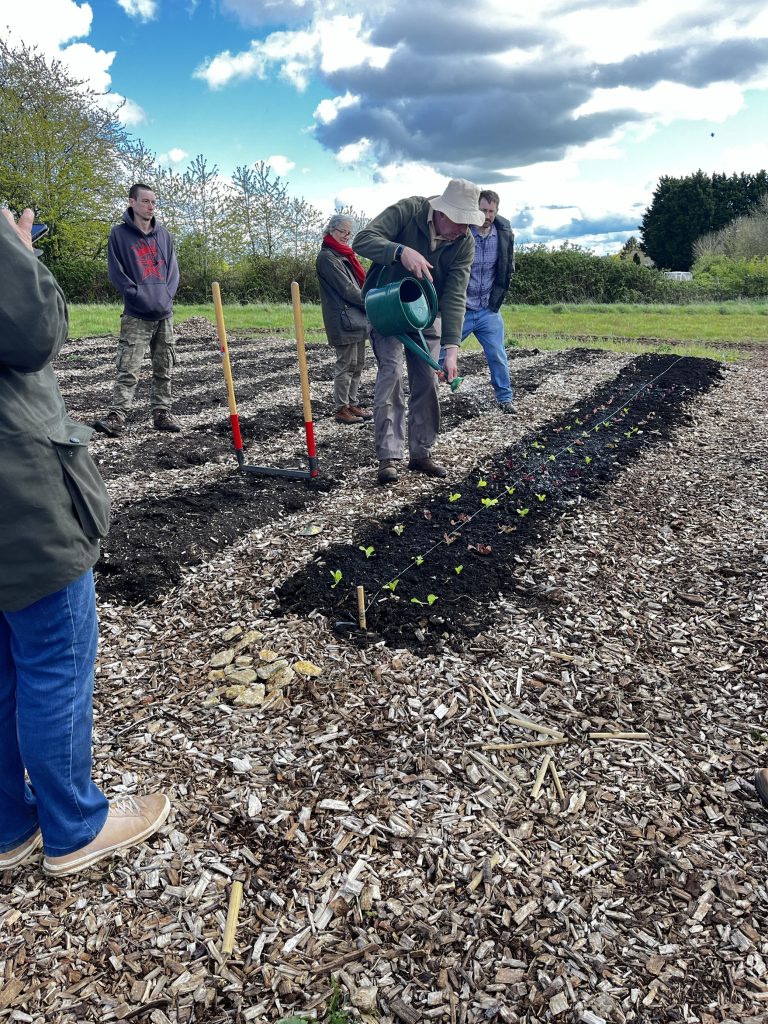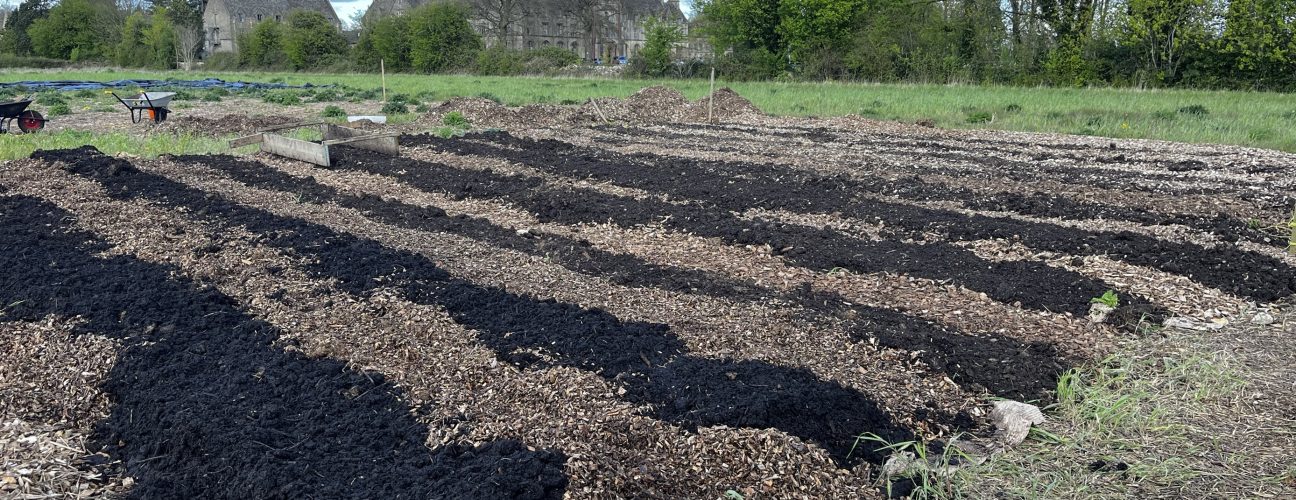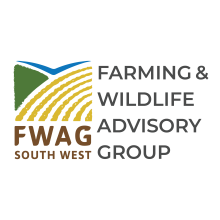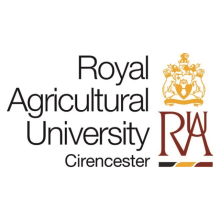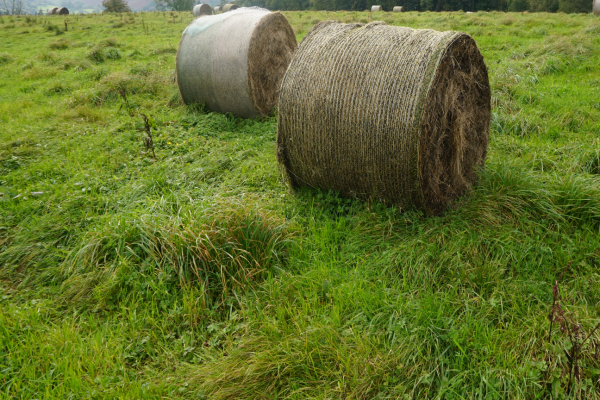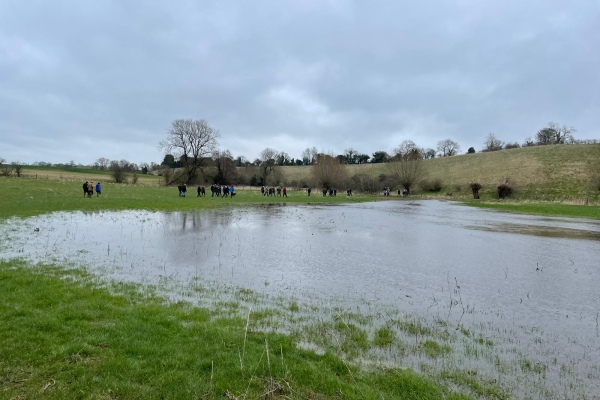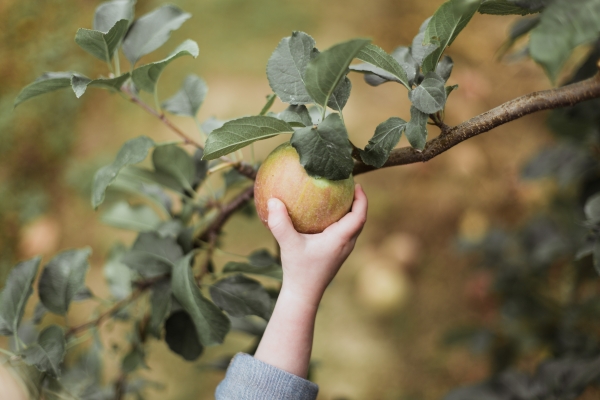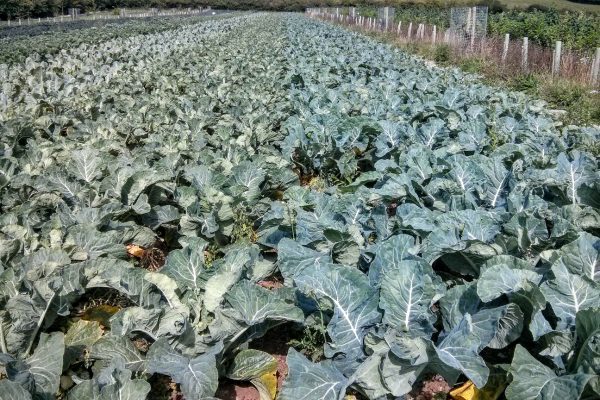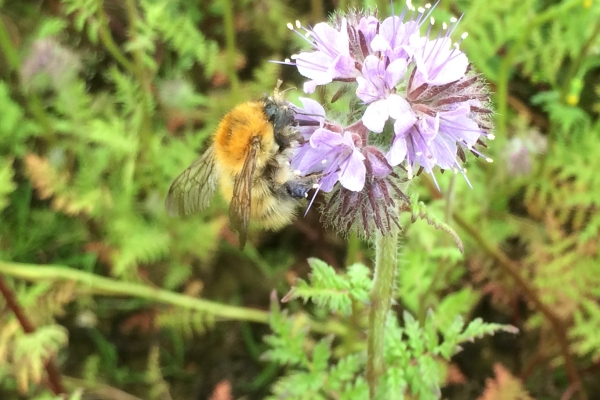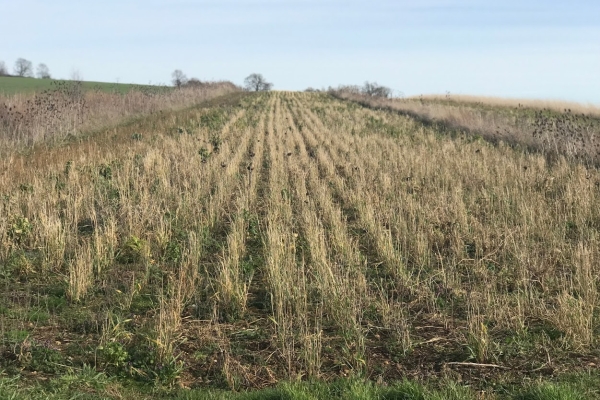The GREAT Project
Project Background
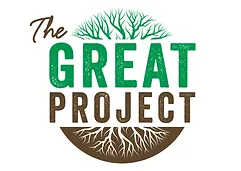
The GREAT (Gloucestershire Regenerative Environment and Agriculture Transition) Project is an innovative multi-agency project which has offered free and subsidised support for Gloucestershire farmers to transition to regenerative agriculture, helping boost the transition to farming methods that restore the soil, water and air, and invigorate local food systems. From January 2021 to December 2023 it was funded by the Thirty Percy Foundation.
The aims of the project consortium have been to “join the dots between farmers, advisors, growers, mentors and their communities to facilitate this change that is so sorely needed for a resilient future for farms, nature and the earth.”
GREAT has since become a brand for projects of FWAG Gloucestershire that prioritise agroecology. There is more detail on these newer initiatives toward the end of this page.
GREAT 2021 – 2023
Project partners:
- FWAG SouthWest
- FarmED
- Royal Agricultural University (RAU)
- RuRALink
- Pasture Fed Livestock Association
- Community Supported Agriculture Network
- Gloucestershire Wildlife Trust
- Gloucestershire Food & Farming Partnership
Find out about the involvement in the project of each of the organisations here
Aims & Approach
The project had three core aims:
1. Building evidence
Building the evidence for regenerative farming, growing and food systems; finding out what works, what’s needed, and how to make it happen, by talking to farmers and new entrants and doing case studies.
2. Facilitating knowledge exchange
Subsidising Gloucestershire farmers to attend events and training courses across the county and the UK where they can learn, mentor, and share experience; and developing a network of farmers, advisors, mentors, and convenors who are ready to be part of the regenerative transition.
3. Nurturing enterprise
Supporting farmers, growers and new entrants to innovate and grow their businesses via subsidised enterprise training and webinars, and a new entrant programme.
Project outputs
From the project website it is possible to access some great resources for farmers; project reports, farm case studies, videos and links to webinars. The reports map best practice, support and resources in regenerative agriculture. Case studies showcase farmers at various points in their regenerative agriculture transition and across a variety of landscapes.
In addition to knowledge exchange events, which have been led by FarmED in Shipton-under-Wychwood, the project has offered a series of ‘enterprise courses’ and webinars, led by the School of Enterprise at the Royal Agricultural University (RAU). New entrants to farming have been able to sign up for mentoring and advice on accessing land. Those already farming in Gloucestershire can already access free advice from FWAG SouthWest or join a mentoring programme so that those beginning the transition to regenerative agriculture can benefit from the support of their peers.
To find out about more project output highlights, key learnings and what’s next for the project, have a read of the Summary Report, 2021-2023.
GREAT REPORTS ON REGENERATIVE AGRICULTURE
GREAT report No.1 Regenerative Agriculture: Context, Definitions and Drivers of Change – building a narrative for a regenerative farming future and signposting readers to sources of inspiration, evidence and support.
GREAT report No.2 Regenerative Agriculture: Key Stakeholders at Global, UK and County Level – put together for the GREAT Project (by Jonty Brunyee and Danielle Semple of FarmED), helping to map key stakeholders in the regenerative agriculture space, acting as a signpost to a wide selection of people, projects and organisations that can offer information, inspiration and support.
CASE STUDIES
1: Regenerating ancestral soils – Lydia and Clive Handy have transformed Lower Hampen Farm into a thriving and varied source of good food. It has been given a new lease of life with a focus on sainfoin, orchards and a new market garden CSA which attracts locals to the small farm shop.
2: New entrant small-holders – Sarah and Richard Kingdom are starting out as new entrants to agriculture. Driven by a wish to restore biodiversity and support local food resilience, they are experimenting with ways of producing affordable food. The current plan is to use their CSA mentoring to sell nuts and fruits alongside pork from woodland-raised pigs.
3: Minimising inputs on a dairy farm – Jo Bennett farms at College Farm. He manages his pedigree Holsteins by taking the best from high-tech innovations in dairy farming and mixing with a more holistic outdoor system that is better for the soil, the cattle and biodiversity, reducing his inputs, and saving money and time.
4: Farming without a farm – James and Katie Allen started out as landless graziers, beginning with a flock of sheep for fleece and moving into conservation grazing with cattle on a share farming agreement and contract grazing. They bought a farm near Swindon and are now mob-grazing with a GREAT-funded 3-strand fencing system. They plan to welcome education groups from the fashion industry, to showcase fully traceable woolen and leather textiles.
5: Stacking enterprises on a County Farm – Simon and Kat Ball took on the tenancy of a Gloucestershire County Council-owned farm. Previously a dairy farm, they have transformed it in a short time to a mix of herbal leys and an increasing amount of permanent pasture for their Aberdeen Angus herd.
6: Pasture for Life-style – Matt and Laura Elliott moved from Bristol to become National Trust tenants at Sandy Hill Farm. Their ‘Sandy Hill Mob’ (mob-grazed Herefords) and mob-grazed hens produce high quality produce that they sell direct. They also produce high-value biltong from low-value silverside of beef (Also see the video below).
7: ELM – The Catalyst – FWAG SouthWest’s ELM Trial has been exploring what is needed to best achieve the goals of the 25 Year Environment Plan. This describes how ELM can catalyse the shift needed and demonstrate the benefit ELM could bring to all landowners.
8: Regenerative grazing in a pasture-fed system – National Trust tenants Jonty and Mel Brunyee farm at Conygree, where they are building up data and experience which shows that a flexible approach to grazing alongside a variety of shared ventures, can produce a bounty of good local food and support several high quality jobs. This contains detailed data tracking the health and outputs of their herbal leys.
VIDEOS
Access all the videos / webinars here.
GREAT Case study: Pasture for Life-style. Sandy Hill Farm, Gloucestershire:
GREAT 2024 onwards
The GREAT Project is now awaiting funding to continue their work of offering free advice to farmers and support for collaboration on all things agroecological. In the meantime, however, is has incubated several new projects:
- GREAT ZeroDig Project: a partnership with ZeroDig Earth that the Farming and Wildlife Advisory Group (FWAG SouthWest) have embarked on where the cultivation of fresh produce is being developed on a site adjacent to the RAU using innovative, nature-friendly farming methods. Previously a conventional arable field, the 7.5 hectare site is being converted to a research-focussed market garden, alongside some experimental plots, using a step-by-step no-dig method, developed by Christopher Upton and Dr Mario Peters. It uses compost, manure and woodchip to build fertility in the soil. The garden is the first example of agroecology in practice at the RAU and will enable researchers and students to embed agroecology, horticulture and local food systems into syllabuses and research. Make sure you follow this project on Instagram to keep abreast of updates. Find out more about the project here. The project has recently featured in BBC Radio 4’s ‘On Your ‘Farm’ series. Have a listen here.
- GREAT Food Gloucestershire: a campaign to give good food in Gloucestershire the visibility it deserves. Its creation, along with the GREAT Project and the Gloucestershire Food and Farming Partnership, were instrumental in Gloucestershire being awarded a Bronze Award from Sustainable Food Places in November 2023.
- GREAT Woods: the latest addition to the GREAT family, GREAT Woods pulls together FWAG Gloucestershire’s work delivering the People and Woods Programme and its Ancient Woodlands monitoring project at the Bathurst Estate.
